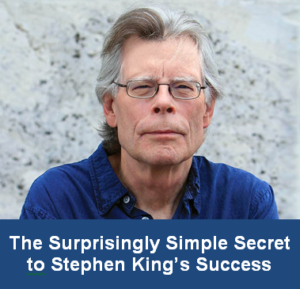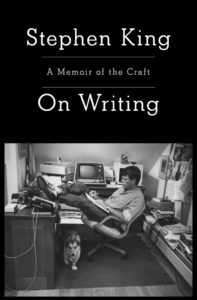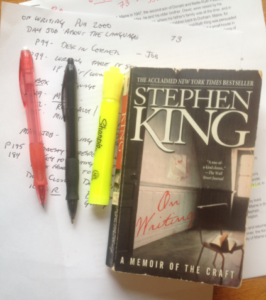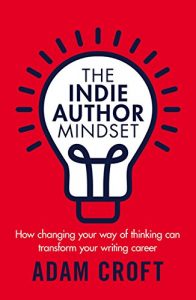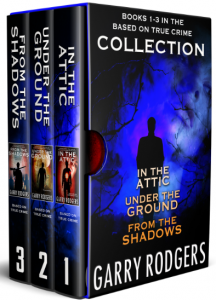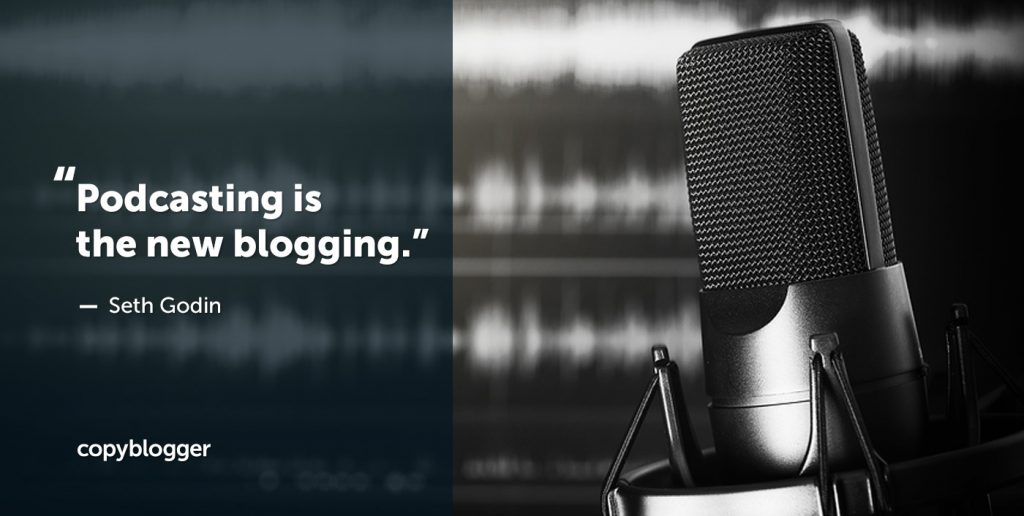 When I started this DyingWords blog nearly 10 years ago, I formed the tagline Provoking Thoughts on Life, Death, and Writing. I’m well past the 400 thought-provoking-post mark now, and I have around 20 indie-published books on the commercial market with over 30,000 eBook downloads in the past 12 months throughout 66 different countries. This decade-long blog and book writing experience includes 2 years I spent getting well-paid to write commercial web content targeting digital age readers. Looking back, I wouldn’t change a thing in my tagline, and my unfolding success as a digital age writer keeps improving.
When I started this DyingWords blog nearly 10 years ago, I formed the tagline Provoking Thoughts on Life, Death, and Writing. I’m well past the 400 thought-provoking-post mark now, and I have around 20 indie-published books on the commercial market with over 30,000 eBook downloads in the past 12 months throughout 66 different countries. This decade-long blog and book writing experience includes 2 years I spent getting well-paid to write commercial web content targeting digital age readers. Looking back, I wouldn’t change a thing in my tagline, and my unfolding success as a digital age writer keeps improving.
Something I’ve learned about successful writing (commercially selling & getting paid) in the digital age is you must know the rules of the game. First, you write. You park your ass in the chair, get your fingers on your keys, and you produce work. You have a brand, and you know the audience you’re writing to. Patience—you’re in this for the long haul—so you keep producing. You have confidence in your work, and you put your work out in public.
But you have to kill your darlings, as Stephen King says, and cut what doesn’t matter to the story no matter how much you love your suckling little bitches. You develop multiple voices, and you write to what your intended audience (ideal reader) wants to hear. You economize. And you balance your artistic aloofness with your entrepreneurial energy and your ego.
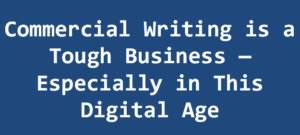 Commercial writing is a tough business—especially in this digital age where online readers really don’t read (they skim) and you’re competing with Youtube cat video grabs at attention. I was going to write a provoking thought on today’s digital writing world, but then I found this piece by Nicholas Cole. He’s an outstanding digital age writer who summed up what it takes to be commercially successful in this crazy day of online content production. This article by Nicholas Cole originally appeared in INC magazine (online) and is approved to share for your enjoyment.
Commercial writing is a tough business—especially in this digital age where online readers really don’t read (they skim) and you’re competing with Youtube cat video grabs at attention. I was going to write a provoking thought on today’s digital writing world, but then I found this piece by Nicholas Cole. He’s an outstanding digital age writer who summed up what it takes to be commercially successful in this crazy day of online content production. This article by Nicholas Cole originally appeared in INC magazine (online) and is approved to share for your enjoyment.
Beware—Nicholas Cole is brutally honest about what it takes to be a successful (money-making) digital age writer. Trust me. I know.
——
7 Skills You Need to Practice to Become a Successful Writer in the Digital Age
by Nicholas Cole
“When people see what I’ve built for myself as a writer, they think it’s the result of my degree in creative writing. It’s not. I tell everyone that my college education was great for two reasons: it taught me how (and what) to read, and it taught me how to read my work aloud–a skill that reveals more about your writing than any amount of silent reading ever will.
But my college education did not teach me about the underlying business model of the writing world. It didn’t explain to me how blogs and major websites make money through digital advertising–and how writers can earn money by driving page views. I didn’t take a class called Personal Branding 101, and I definitely didn’t learn about email marketing funnels and lead magnets and landing pages in my class on Russian literature.
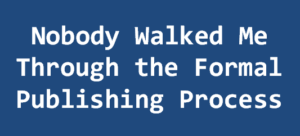 Nobody walked me through the formal publishing process, explained what a typical royalty contract looked like, and certainly didn’t compare that old-world approach with the possibilities of self-publishing through Amazon. And most of all, there was no class for the fast-paced writing styles that drive, quite literally, every single viral piece of writing on the internet.
Nobody walked me through the formal publishing process, explained what a typical royalty contract looked like, and certainly didn’t compare that old-world approach with the possibilities of self-publishing through Amazon. And most of all, there was no class for the fast-paced writing styles that drive, quite literally, every single viral piece of writing on the internet.
These were all parts of the “digital writer” path I had to teach myself–and all ended up being more valuable than the hours I spent notating Crime and Punishment.
Becoming a successful writer in the digital age is not just about writing. That’s the foundation, of course, but in today’s world–just as musicians have had to become their own marketing managers and creative directors, and even play the role of entrepreneur–writers have to do more than just write.
Here are the 7 skills you need to practice if you want to become a successful writer in the digital age:
1. The habit of writing.
If you want to be a writer, you have to write. There is no simpler way to say it.
If you want to be a painter, you have to paint. If you want to be a cook, you have to cook. If you want to be X, you have to practice X–far more than you “think” about how badly you want to be X.
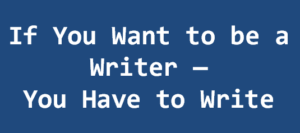 All through college, I watched the majority of my peers wait to write. They were waiting to feel inspired, waiting to see what the teacher thought of their last piece, waiting for some outside nod of approval instead of just getting on with it and putting pencil to paper (or fingers to keys).
All through college, I watched the majority of my peers wait to write. They were waiting to feel inspired, waiting to see what the teacher thought of their last piece, waiting for some outside nod of approval instead of just getting on with it and putting pencil to paper (or fingers to keys).
I’m here to tell you that unless you can establish the simple practice of writing into your daily schedule, you will never succeed. Period. Stop reading here, because nothing else I tell you will matter–unless you can first firmly establish this habit into your everyday life.
If you want to become a writer, you have to write. Every single day.
2. The art of personal branding.
People don’t buy writing. They buy you.
In the digital age, the single most valuable thing you can create for yourself is a brand around who you are and whatever it is you write about.
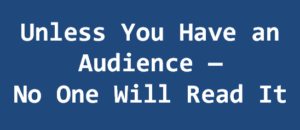 You could be the most incredible wordsmith the world has ever seen, but unless you have an audience, nobody will read it–and even if you want to go the conventional publishing route, a publisher will see you and your work as a gamble. You don’t have a following on the internet. You don’t have an e-mail list of people ready to read your next piece of work.
You could be the most incredible wordsmith the world has ever seen, but unless you have an audience, nobody will read it–and even if you want to go the conventional publishing route, a publisher will see you and your work as a gamble. You don’t have a following on the internet. You don’t have an e-mail list of people ready to read your next piece of work.
Nobody knows who you are, and that’s a problem.
I attribute a lot of my success as a writer to my working knowledge of branding, positioning, marketing, and social storytelling. And as much as we writers would love to hide away and not have to “put ourselves out there,” we don’t have that luxury anymore. We are now competing against YouTubers, Instagram stars, and viral cat videos. People are either reading our work, or they’re watching two cats swing from a ceiling lamp.
To attract (and keep) people’s attention, you have to give them something to feel loyal to–and that’s you.
3. The patience to play the long game.
There are two types of writing: the kind you share, and the kind you sell.
Ninety-nine percent of artists–whether you’re a writer, a musician, a filmmaker, a painter–want to come out of the gate and have someone (they’re not quite sure who, but someone) pay them to create whatever it is they want to create.
 As an independent writer, I’ve learned that consumers buy only two things: things they like, and things they need. Everything else, we ignore–no matter how “brilliant” someone else says it is. Which means, as creators, it’s our job to adopt a similar mentality: here are the things I create for myself (that someone else might like), and here are the things I create to solve a consumer need (and turn a nice profit, which allows me to spend more time creating things I enjoy).
As an independent writer, I’ve learned that consumers buy only two things: things they like, and things they need. Everything else, we ignore–no matter how “brilliant” someone else says it is. Which means, as creators, it’s our job to adopt a similar mentality: here are the things I create for myself (that someone else might like), and here are the things I create to solve a consumer need (and turn a nice profit, which allows me to spend more time creating things I enjoy).
The poetry I keep in my journal? There’s probably a very small market for that. A book that teaches aspiring writers how to become successful in the digital age? Much larger market.
Now, this doesn’t mean I should never write poetry. But this also doesn’t mean I should only write poetry and expect to make a fortune.
4. The confidence to practice in public.
Nothing has done my writing more good than regularly sharing my work on the internet.
 When you publish something out in the open, when you “practice in public” (as I like to call it), you receive immediate feedback. You feel vulnerable. You fear judgment. You see your work and read your sentences with a heightened awareness (“I can’t believe I didn’t catch that before …”). And most of all, you practice the most important underlying habit of all: the confidence to admit, “This is what I wrote today–in all its imperfection.”
When you publish something out in the open, when you “practice in public” (as I like to call it), you receive immediate feedback. You feel vulnerable. You fear judgment. You see your work and read your sentences with a heightened awareness (“I can’t believe I didn’t catch that before …”). And most of all, you practice the most important underlying habit of all: the confidence to admit, “This is what I wrote today–in all its imperfection.”
I mentor a lot of aspiring writers. Some of the most frequent emails I receive come from those who want to turn writing into their career–but are afraid to share anything they’ve written: “I just feel like I’m not there yet. I want to make my debut when I’m ready.”
Can I give you a brutal truth?
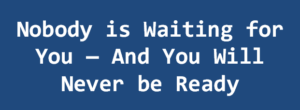 Nobody is waiting for you. And you will never be ready.
Nobody is waiting for you. And you will never be ready.
All artists have this fear that what they made today isn’t good enough–and if they share it, what will happen five, 10 years later when they look back? Won’t everyone laugh at how bad it is? Won’t it be a disgrace?
That’s certainly one way to look at it. But in all honesty, I don’t see it that way at all.
In fact, there’s nothing I enjoy more than looking back at something I wrote years ago and seeing where my writing style was at, at that time. It’s like witnessing a younger version of myself–and I can, with infinite more clarity, see how I’ve improved since then.
5. The humility to cut what wastes the reader’s time.
I had someone reach out to me recently who described my writing style as “minimalistic.” I’d never thought about it that way–but that’s an accurate word for it.
Some writers love description. They want you to see every blade of grass, every leaf on the tree, every long and winding grain in the tree trunk turned kitchen table. Other writers love dialogue. They want you to hear their characters talk, and talk, as if their voices were lined with gold and a pleasure to listen to indefinitely. Some writers live by the facts, and color their paragraphs with statistics and footnotes and miscellaneous information intended to add further depth to the topic at hand. And some writers just want to float on their stream of consciousness, letting their words guide the way without ever intervening and making a conscious decision to stop and move on to the next point or moment in time.
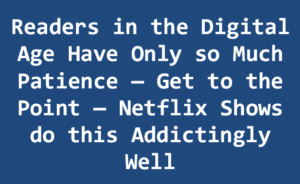 To each their own, but from my experience (and I’ve written close to 2,000 pieces online), readers in the digital world have only so much patience. They just want you to get to the point–Netflix shows do this addictingly well.
To each their own, but from my experience (and I’ve written close to 2,000 pieces online), readers in the digital world have only so much patience. They just want you to get to the point–Netflix shows do this addictingly well.
Part of writing in the digital age means understanding your audience–and today’s readers barely have the patience to sit through a two-sentence tweet or a seven-second Snapchat video.
Paragraphs and paragraphs of static description is a lot to ask of today’s readers, and a good many writers fail because they refuse to adjust.
6. The mastery of multiple voices.
As an independent writer, the ability to write with a range of voices will be your most valuable (and easiest to monetize) skill.
There are dozens of different voices a writer should hone throughout his or her career–including all the writing voices that need to be deployed to effectively market yourself as a writer.
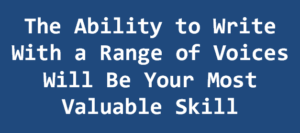 There is an art to writing sales copy, an art to writing e-mail sequences, an art to writing social media posts that can leave an impact on a reader in three or four sentences. There is an art to writing articles that subtly promote your work, an art to writing e-books that readers will want to download. And the reason why it’s so important to nurture these business-focused voices is because either you’re going to learn how to do it for yourself, or you’re going to have to hire someone (like me) to do it for you.
There is an art to writing sales copy, an art to writing e-mail sequences, an art to writing social media posts that can leave an impact on a reader in three or four sentences. There is an art to writing articles that subtly promote your work, an art to writing e-books that readers will want to download. And the reason why it’s so important to nurture these business-focused voices is because either you’re going to learn how to do it for yourself, or you’re going to have to hire someone (like me) to do it for you.
Part of being a successful writer in the digital age means being more than just a writer. You have to be the creative director, the marketer, and the social media strategist too.
7. The willingness to be both an artist and an entrepreneur.
I really do believe that every artist today has to also become an entrepreneur–if he or she wants to be successful independently.
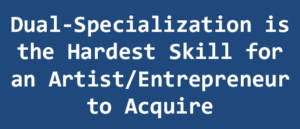 This dual-specialization is probably the hardest skill for an artist to acquire. They are two opposing forces, both striving toward very different goals. As an artist, you want to express yourself and write what feels most truthful. As an entrepreneur, you are always searching for what’s going to perform well, resonate with readers, and ultimately sell.
This dual-specialization is probably the hardest skill for an artist to acquire. They are two opposing forces, both striving toward very different goals. As an artist, you want to express yourself and write what feels most truthful. As an entrepreneur, you are always searching for what’s going to perform well, resonate with readers, and ultimately sell.
As someone who spent years facilitating imaginary conversations between both sides of myself–the artist and the entrepreneur–in search of balance, it took me a long time to fully understand that you can’t have one without the other. You cannot become a successful writer (or artist period) in the digital age without some sense of awareness of how the business world works.
The entrepreneur in you is the part you want showing up to meetings. The entrepreneur is the one you want negotiating deals, contracts, opportunities, and more. The entrepreneur is the one you want to empower to protect your inner artist, and to have the working knowledge of the business world so you don’t find yourself giving up 80 percent ownership over your work–or worse, writing for minimum wage.
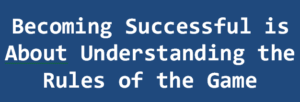 I am a writer, through and through. It’s who I am in my heart. I couldn’t imagine going a single day without finding a quiet place to write something, anything, that I feel. But had I not honed my skills as an entrepreneur, I might still be scouring Craigslist for the next opportunity to write articles for $25 a pop.
I am a writer, through and through. It’s who I am in my heart. I couldn’t imagine going a single day without finding a quiet place to write something, anything, that I feel. But had I not honed my skills as an entrepreneur, I might still be scouring Craigslist for the next opportunity to write articles for $25 a pop.
It’s not about being one or the other–an artist or an entrepreneur.
Becoming successful, period, is about understanding the rules of the game so that you can do what it is you love, on your own terms, for the rest of your life.”
——
 Nicholas Cole knows the rules of the game. Nicholas is a top digital age writer and entrepreneur who’s one of the most-read online scribes and a motivated mover & shaker. His pieces have over 100 million post views.
Nicholas Cole knows the rules of the game. Nicholas is a top digital age writer and entrepreneur who’s one of the most-read online scribes and a motivated mover & shaker. His pieces have over 100 million post views.
Fortune 500 companies and leading publishers like Time, Harvard Business Review, and Forbes have paid Nicholas Cole well to produce web content that resonates with digital readers. Besides being an indie writer in his Digital Press company, Nicholas also spearheads Ship 30 for 30 where he mentors emerging writers. Check out Nicholas Cole’s recent book, The Art & Business of Online Writing: How to Beat the Game of Capturing and Keeping Attention.

